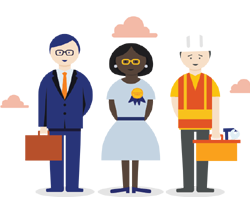
When faced with the interview question, “Why don’t you have a degree?” it’s important to address it honestly and confidently, focusing on the skills and experiences that make you a strong candidate. Here’s how you might approach your answer:
1. Acknowledge the Question Directly:
Start by addressing the question directly. Acknowledging the absence of a degree shows that you’re aware of it and are ready to discuss it.
Example: “I understand that not having a degree might raise some questions.”
2. Highlight Relevant Skills and Experience:
Shift the focus to your skills and experiences. Emphasize how these have prepared you for the role you’re applying for.
Example: “While I don’t have a degree, I have gained extensive experience in [relevant field] through [previous jobs, projects, certifications, or training]. For instance, at [previous company], I was responsible for [specific tasks or projects], which allowed me to develop [relevant skills].”
3. Discuss Alternative Learning Paths:
Show that you’ve pursued alternative ways to learn and grow professionally. This demonstrates your commitment to self-improvement and your proactive nature.
Example: “I have actively pursued professional development opportunities, such as [online courses, workshops, or certifications], which have provided me with a strong foundation in [relevant area].”
4. Emphasize Your Achievements:
Share specific achievements or successes that highlight your capabilities and how they’ve contributed to your professional growth.
Example: “One of my key achievements was [describe a notable accomplishment], which required [specific skills or knowledge]. This experience has equipped me with a practical understanding of [relevant area] that I believe will be valuable for this role.”
5. Connect Your Experience to the Job:
Tie your background and skills directly to the job you’re applying for, showing how they make you a great fit for the position.
Example: “Given the responsibilities of this role, I’m confident that my experience in [specific skill or field] and my ability to [relevant task] align well with what you’re looking for in a candidate.”
6. Reiterate Your Enthusiasm:
Close by expressing your enthusiasm for the role and your commitment to bringing your best to the position.
Example: “I am excited about the opportunity to contribute to [company] and am confident that my hands-on experience and skills will allow me to make a meaningful impact.”


